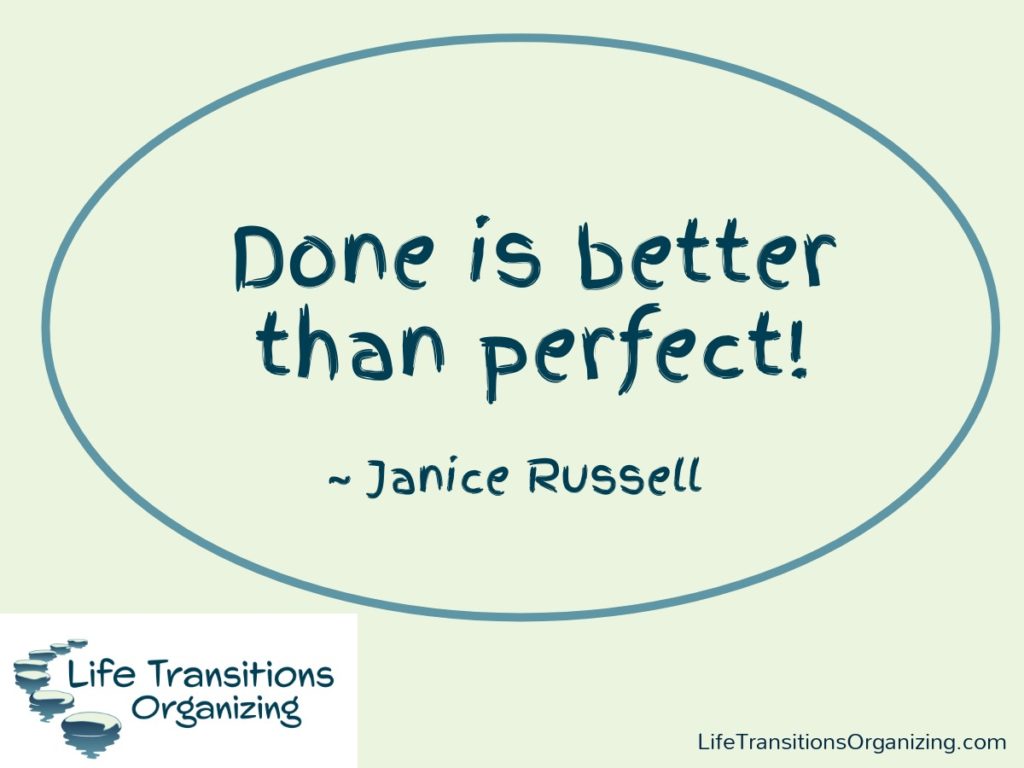
7 Crucial Tactics for Task Management During Life-Altering Experiences
Food poisoning. Lingering flu. Rotator cuff surgery. Medical episodes come in different shapes and sizes.
In your crazy-busy life, I’m sure you don’t even want to think about being sick. Unfortunately, even when we try our best, we can’t always be the picture of good health. And regardless of the type of medical condition, your schedule will be impacted.
Let’s look at three distinct impacts:
-
A day or two. The ailment is fairly quick. Your calendar is altered on a limited basis. A few missed events and some time that you’re unable to complete tasks, while a nuisance, there are no long-term impacts to your schedule.
-
A week or two. This illness lingers for awhile. In the beginning, you aren’t able to do much at all. As time passes, you feel better on some days than others. So your ability to get tasks done varies according to your energy level. You can’t attend to all of your commitments, so some get dropped and others get rescheduled. However, the interruptions are short-term.
-
A month or two (or more). A broken limb, surgery, or another major medical event causes a major disruption to your daily agenda for months. Time for doctor or physical therapy appointments, the inability to drive, pain, and a host of other medical-related effects have long-term effects to your calendar. You’ll have to implement more lasting solutions to create a workable schedule that addresses your obligations.
Acknowledge the change. As difficult as it is, you must recognize that you won’t be able to do things the way you have been. Your physical and mental energy will be less than usual, so your ability to complete tasks will be compromised. In addition, you may need extra sleep or require additional medical appointments. The combination means that the number of hours in a day that you are usually occupied with endeavors won’t be available. It isn’t your fault. Your body needs to heal.
In addition to acknowledging the illness to yourself, you need to tell others. Trying to “push through” the illness in the short-term may cause it to last longer. And if you try to go to work, you’re exposing others (if contagious). Or setting yourself or others up for failure, if you can’t follow through with tasks you’ve committed to.
Don’t answer the phone. Put an auto-responder on email saying, “I’m under the weather and unavailable until further notice” or “I’m on a medical leave of absence.”
You are setting personal boundaries and this is a good thing!
Check for “hard” deadlines. Bills that are due. Work proposals to potential clients. Color of granite for the contractors to order so your kitchen will be completed on time. Replacing the roof so it doesn’t leak every time it rains.
There will always be due dates that have little, if any, wiggle room. That doesn’t mean that you have to do the tasks (I’ll discuss this below). It simply means the task has to be done.
You may note these deadlines in your to-do list, set alarms in your calendar or put sticky notes on the bathroom mirror. The method doesn’t matter; it’s whatever works for you, so you’ll meet the deadline.
If anything with a hard due date is a project, take a moment to list the steps of the project. You won’t have your regular stamina, so the length of time you’re able to work is diminished. You’ll need to allot additional time to complete the project.
Prioritize the “soft” deadlines. Tasks without a definitive due date still need to be ranked. You won’t want them to fall completely off your radar.
There isn’t a right or wrong system to use to define and maintain the importance of tasks and projects. Some people like a pad of paper with a 1, 2, 3 or A, B, C rating scale. Others prefer an app to prioritize their to-do’s. There are many options. The choice is the one that makes sense to you and which you’ll use consistently.
For other prioritization tips, see 7 Key Tactics the Pros Use for Prioritizing (& De-prioritizing!) Tasks.
Defer with fervor. Once you’ve determined priority, review the list and see which ones can be postponed to another time all together. If a task doesn’t have a set deadline, except maybe in theory, and it’s of low importance, chances are it can be put off until your life has stabilized.
These to-do’s can be given another “code” in your prioritization system so you’ll remember to put them back to your “active” task list later.
Delegate anything that you can. There may be important obligations that you don’t have the physical or mental capacity to complete. It’s okay! Give “it” or part of “it” to someone else. Between virtual assistants, personal concierge services, and dedicated errand runners, you can always find someone to help you out.
I can hear the voice in your head saying, “But they won’t do it like I would” or “It will take longer to delegate than to do it myself.” Remember that done is better than perfect!

Delete with delight. There are some tasks that just need to be permanently deferred – otherwise known as deleted?
Start by looking at items that have been on your to-do list for a long time. If they just go from one list to the next, they can’t be very important. This means they can be removed.
There may be other tasks that, upon a second glance, aren’t applicable anymore. Maybe you’ve been planning to return a hot-pad that someone left at your house after a pot-luck…2 years ago and that person has moved to another state. First, even if the person still lives close by, chances are they haven’t missed that hot-pad and/or they’ve replaced it. Second, if it really bothers you, call first before trying to return it. It’s possible they don’t even remember they left it.
Okay, so that may be an absurd example. Well… not really, because I’ve had people tell me similar stories about an item of low monetary value.
Accept help. If your health condition is serious and/or prolonged, people may say, “Let me know if there’s anything I can do to help.” Your answer is always, “Yes. That would be great!” Then suggest one or more specific needs. Here are some examples:
-
A meal.
-
Grocery or toiletry run.
-
Transportation to or from a medical appointment.
-
Attending a doctor visit with you to take notes.
-
Rearranging things in a space to make them easier to reach.
-
Return books to the library.
I will not tell you that this is easy. It is something I struggle with. Notice I didn’t say, “Ask for help.” If you can, that’s great! However, since it’s difficult for many to accept help, it’s even more challenging to ask for it. That’s why I list some examples of help. Then you’re prepared when people offer. Otherwise, when someone offers, if you don’t have any ideas, later on if you do, you’ll have to actually ask them?
Which of these seven tactics would you like to read about more in-depth in a future article? Let me know below.
Tag:accept help, de-prioritizing, delegation, Life Transitions for Women, Life Transitions Organizing, Life Transitions Resources, Life-Altering Experiences, life-disrupting situation, medical condition, prioritization system, prioritization tips, prioritizing, productivity during transitions, push through, Task Management, Time Management Tips, to do list



